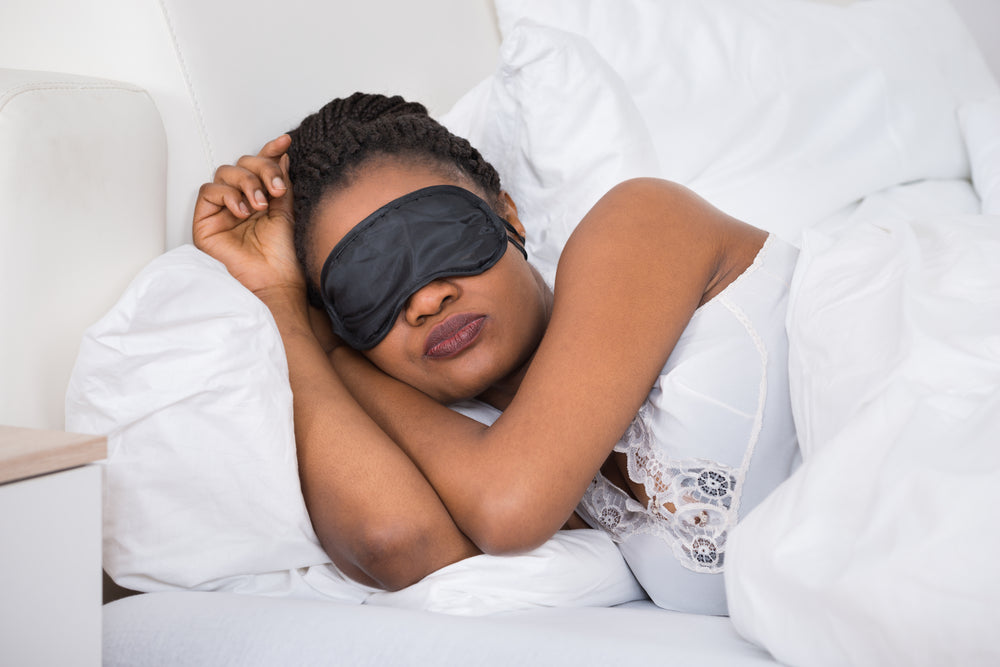I’m sure we all know the wonders sleep does for us. It’s basically the cure-all for all our life’s problems. When I’m going through an emotional roller coaster, have writer’s block, am sick, or need a break, sleep seems to always be the answer.
But a lot of us are prone to tossing and turning, staying up late for unknown reasons, and wanting to swipe our phones until dawn. Our bodies will thank us for getting a better night’s rest. Here are a few ways to make the most out of our beauty sleep.
Listen to Sleep Meditation or Sleep Music Before Bed
Guided meditation can help you enter into sleep and enjoy a deep, restorative sleep. Through guided sleep meditation, your muscles will relax, your breathing will become slow and deep, and your common daily thoughts will be replaced with rich, dreamlike imagery.
Try apps like calm.com or listen to already-made playlists on Spotify and see how quality sleep music works for you.
Make Sure Your Bed Is Facing Your Room Door
It sounds like a strange thing that the direction your bed faces can affect how you sleep. But we’ve evolved to feel safe when we can spot danger early and still have time to run.
That’s from our primitive ancestors who slept in caves and were susceptible to being attacked by wild animals at any given moment. So having your bed face your room door and be furthest from it might contribute to relaxing our mind a little more than if it weren’t placed that way.
Use The Bedroom for Only Two Things
Sleep and sex. You want to help your body recognize that your bedroom is a place for rest and intimacy, not for work, paying bills, watching tv, etc.
Exercise

Research shows that exercising helps improve sleep patterns because it lifts your mood and reduces stress. It also strengthens circadian rhythms, which promotes daytime alertness and helps bring on sleepiness at night.
A recent National Sleep Foundation poll found that regular exercisers were significantly more likely to report sleeping well on most nights than people who were not physically active, helping to improve not only the quantity of sleep but also the quality.
Sleep in Complete Darkness
Daylight directly inhibits the release of melatonin in your brain. Melatonin is a natural hormone released into your blood when darkness occurs and helps your body feel less alert, thus making sleep more inviting. Try using dark curtains for your windows or an eye mask. Using earbuds to keep sound out is also a good idea.
Keep Your Room in the Right Temperature

The temperature of your bedroom also affects sleep. Most people sleep best in a slightly cool room (around 65°F or 18°C) with adequate ventilation. Experts agree the temperature of your sleeping area and how comfortable you feel in it affect how well and how long you snooze.
“When you go to sleep, your set point for body temperature – the temperature your brain is trying to achieve – goes down,” says H. Craig Heller, Ph.D., professor of biology at Stanford University, who wrote a chapter on temperature and sleep for a medical textbook. “Think of it as the internal thermostat.”
That mild drop in body temperature induces sleep. Generally, Heller says, “if you are in a cooler [rather than too-warm] room, it is easier for that to happen.” But if the room becomes uncomfortably hot or cold, you are more likely to wake up, says Ralph Downey III, Ph.D., chief of sleep medicine at Loma Linda University and one of the specialists treating Roy.
He explains that the comfort level of your bedroom temperature also especially affects the quality of REM (rapid eye movement) sleep, the stage in which you dream.
Turn off Electronics

There is quite a bit of research showing that light promotes wakefulness. Photoreceptors in the retina sense light and dark, signaling our brain about the status of the outside world and aligning our circadian rhythms (centered in a small region of the hypothalamus called the suprachiasmatic nucleus) to the external day-night cycle.
So the best advice here is to stop checking your email, scrolling through Instagram, binge-watching Facebook videos, or watching TV just before bedtime. A study shows that people who are on their electronics just before bedtime report lower-quality sleep even when they get as much sleep as people who don’t use electronics before bed.
Let us know what you do to help you sleep better!

 Log in
Log in
